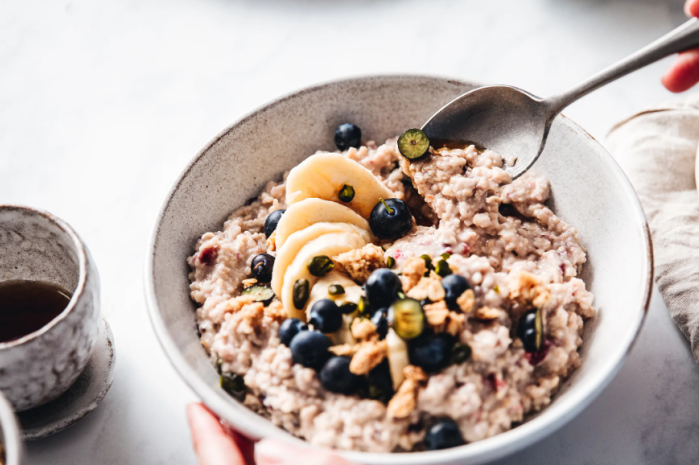Heart disease remains one of the leading causes of mortality worldwide, encompassing conditions such as coronary artery disease, heart failure, and arrhythmias.
While genetics and lifestyle factors contribute to heart disease risk, adopting a heart-healthy diet is paramount for both prevention and management.
In this comprehensive guide, we’ll explore the best dietary approach for promoting heart health, lowering risk factors, and supporting overall well-being. From emphasizing nutrient-rich foods to minimizing harmful components, we’ll cover everything you need to know to nourish your heart and safeguard cardiovascular health.
Understanding Heart Disease and Diet
Before diving into dietary recommendations, it’s essential to understand the relationship between diet and heart disease:
1. Impact of Diet on Cardiovascular Health:
Research consistently demonstrates that diet plays a significant role in the development and progression of heart disease.
Certain dietary patterns, such as those high in saturated fats, trans fats, sodium, and added sugars, are associated with an increased risk of cardiovascular events, while others, such as the Mediterranean diet and DASH (Dietary Approaches to Stop Hypertension) diet, have been shown to lower risk factors and improve heart health.
2. Key Nutrients for Heart Health:
Certain nutrients play a crucial role in promoting cardiovascular health, including omega-3 fatty acids, fiber, antioxidants, potassium, magnesium, and plant sterols.
These nutrients help lower cholesterol levels, reduce inflammation, regulate blood pressure, and protect against oxidative stress, all of which contribute to a healthier heart.
3. Impact of Lifestyle Factors:
In addition to diet, lifestyle factors such as physical activity, smoking, alcohol consumption, stress management, and maintaining a healthy weight also influence heart disease risk.
Adopting a comprehensive approach that addresses all aspects of lifestyle is essential for maximizing heart health and reducing the likelihood of cardiovascular events.
The Best Diet for Heart Disease Prevention and Management
When it comes to choosing the best diet for heart disease prevention and management, several dietary patterns have been extensively studied and shown to be effective. Here are some of the most recommended dietary approaches:
1. Mediterranean Diet:
The Mediterranean diet is renowned for its heart-healthy benefits and is based on the traditional dietary patterns of countries bordering the Mediterranean Sea.
It emphasizes fruits, vegetables, whole grains, legumes, nuts, seeds, olive oil, fish, and poultry, while limiting red meat, processed foods, and sweets. The Mediterranean diet is rich in omega-3 fatty acids, fiber, antioxidants, and monounsaturated fats, all of which contribute to improved heart health.
2. DASH Diet:
The DASH diet is specifically designed to lower blood pressure and reduce the risk of hypertension, a significant risk factor for heart disease.
It focuses on consuming fruits, vegetables, whole grains, lean proteins, and low-fat dairy products while minimizing sodium intake. The DASH diet is high in potassium, magnesium, calcium, and fiber, which help regulate blood pressure and support cardiovascular health.
3. Plant-Based Diet:
Plant-based diets, such as vegetarian and vegan diets, are associated with a lower risk of heart disease due to their emphasis on fruits, vegetables, whole grains, legumes, nuts, and seeds.
Plant-based diets are naturally low in saturated fats and cholesterol and high in fiber, antioxidants, and phytonutrients, making them conducive to heart health.
4. Low-Sodium Diet:
Excessive sodium intake is linked to high blood pressure and an increased risk of heart disease.
A low-sodium diet focuses on reducing salt intake by choosing fresh, minimally processed foods, avoiding high-sodium condiments and processed snacks, and using herbs, spices, and citrus juices to flavor meals instead of salt.
5. Anti-Inflammatory Diet:
Chronic inflammation is a contributing factor to heart disease, so adopting an anti-inflammatory diet can help reduce inflammation and protect cardiovascular health.
This diet includes foods rich in omega-3 fatty acids (fatty fish, flaxseeds, chia seeds), antioxidants (berries, leafy greens, nuts), and anti-inflammatory spices (turmeric, ginger, garlic), while minimizing pro-inflammatory foods such as refined carbohydrates, processed meats, and sugary beverages.
Practical Tips for Implementing a Heart-Healthy Diet
Incorporating a heart-healthy diet into your lifestyle doesn’t have to be complicated. Here are some practical tips for adopting and maintaining a heart-healthy eating pattern:
1. Focus on Whole, Nutrient-Rich Foods:
Base your meals around whole, nutrient-dense foods such as fruits, vegetables, whole grains, legumes, nuts, seeds, and lean proteins. These foods provide essential vitamins, minerals, fiber, and antioxidants that support heart health and overall well-being.
2. Choose Healthy Fats:
Opt for sources of healthy fats such as olive oil, avocado, nuts, seeds, and fatty fish (salmon, mackerel, sardines) while minimizing saturated and trans fats found in processed foods, fried foods, and fatty cuts of meat.
3. Limit Added Sugars and Refined Carbohydrates:
Reduce your intake of added sugars, sugary beverages, and refined carbohydrates such as white bread, pastries, and sugary snacks. Instead, choose whole grains, fruits, and naturally sweetened treats in moderation.
4. Moderate Salt Intake:
Be mindful of your sodium intake by reading food labels, avoiding high-sodium processed foods, and using herbs, spices, and other flavorings to season your meals instead of salt.
Aim to consume no more than 2,300 milligrams of sodium per day, or even less if you have hypertension or are at risk of heart disease.
5. Practice Portion Control:
Pay attention to portion sizes and avoid overeating, especially of calorie-dense foods. Use smaller plates, measure serving sizes, and listen to your body’s hunger and fullness cues to prevent excess calorie consumption.
6. Stay Hydrated:
Drink plenty of water throughout the day to stay hydrated and support optimal heart function. Limit the consumption of sugary beverages and opt for water, herbal tea, or sparkling water as your primary beverages.
7. Be Mindful of Alcohol:
If you choose to consume alcohol, do so in moderation. Limit your intake to no more than one drink per day for women and two drinks per day for men, and choose lower-alcohol options such as wine, beer, or spirits mixed with calorie-free mixers.
8. Plan and Prepare Meals:
Take the time to plan and prepare meals ahead of time to ensure that you have healthy options readily available. Batch cook, meal prep, and pack lunches and snacks to take with you on the go to avoid relying on unhealthy convenience foods.
Conclusion
In conclusion, adopting a heart-healthy diet is an essential component of preventing and managing heart disease.
By focusing on nutrient-rich foods, minimizing harmful components, and incorporating dietary patterns such as the Mediterranean diet, DASH diet, plant-based diet, low-sodium diet, and anti-inflammatory diet, individuals can significantly reduce their risk of cardiovascular events and improve their overall heart health.
With practical tips for implementation and a commitment to making sustainable lifestyle changes, anyone can nourish their heart and enjoy the benefits of a healthier, happier life. Remember that small changes add up over time, so start today and take proactive steps towards supporting your heart for years to come.


























